Today is Ferragosto, quite the most somnolent day of the Italian calendar. I remember working during my first summer as a guide with no control over my calendar. In that distant—prelapsarian—August of two thousand and one I took the work I was given. I had just turned twenty-four and spoke barely any Italian. There was not a soul I knew left in town, nor even a coffee bar open. I may be misremembering but I swear tumbleweed rolled through the streets.
There were no social media or streaming services so I worked, sweated, and read under a ceiling fan in Trastevere in a sort of acute loneliness, rendered delicious by its finite nature. My greatest extravagance was buying novels at the international Feltrinelli bookshop at Piazza della Repubblica. Central Rome didn’t really have supermarkets then and all the alimentari were closed so I had to do my shopping in the supermarket under Termini station.
Tradition says that a holiday was established by Rome’s first emperor in 18 BCE as a break following the harvest, the Feriae Augusti (holidays of Augustus) is often considered the world’s oldest observed public holiday. Despite its Christianisation as the Feast of the Assumption of the Virgin (and a shift from the beginning to the middle of the month) it maintains the ancient name.
Undoubtedly that level of desertedness for most of August is long gone, but still if one leaves the very centre of town parking spaces abound, streets are empty, markets are deserted and shops closed. Il Sorpasso, Il Pranzo di Ferragosto and Caro Diario are films I’ve mentioned elsewhere which I think best capture the enervating heat and somnolence of Rome at Ferragosto, which for me will always be frozen in that summer of 2001 for I haven’t spent another fifteenth of August in the city since.
Thoughts of Ferragosto always make me think of an extraordinary and far-reaching tale of a Roman scampagnata (a jaunt in the countryside). Simón Bolivar, together with his mentor Simón Rodriguez (also known as Samuel Robinson while in exile from Latin America), having witnessed the coronation of Napoleon Bonaparte as King of Italy in Milan Cathedral on 26 May 1805 made their way to Rome.
On 15 August 1805 they were taken beyond the city to the Monte Sacro (now an inner suburb of the city along the Aniene). Here Bolivar was told of the first secession of the plebeian class which began in 495 BCE, during the very first years of the Roman Republic. During this rebellion the plebeians (those Roman citizens not part of the more powerful patrician class, divisions which were said to have been established by Romulus) were led by Lucius Sicinius Vellutus and eventually the secession was ended with the creation of a new political representation, the Tribune of the Plebeians, of which Vellutus was the first incumbent. And so it was that on Ferragosto of 1805, possibly over sandwiches (what sort of a scampagnata doesn’t have sandwiches?), at the age of twenty-two Simón Bolivar vowed to liberate Latin America from the shackles of Spanish rule.
“I swear before you, I swear by the God of my fathers, I swear by them, I swear by my honour and I swear by my country, that I will not give rest to my arm, nor rest to my soul, until I have broken the chains that oppress us by the will of Spanish power!”
Montesacro is the neighbourhood where my accountant used to have his office and, having dealt with the sort of admin which I put off and always rather dread, my reward would be a wander to the nearby medieval rebuilding of a the Roman bridge which took the via Nomentana over the Aniene; a bridge once crossed by Charlemagne over waters which took Hadrian to his villa at Tivoli. While there I would take a walk through the little park named for Caio Sicinio Belluto, a medieval variant on Vellutus’ name, and contemplate the productive secession of the plebeians, and how it inspired the revolutionary fervour of Bolivar twenty-three centuries later. Which is, I think we can agree, quite a splendidly eclectic mix for a quiet suburb on the Via Nomentana.
Buon Ferragosto!


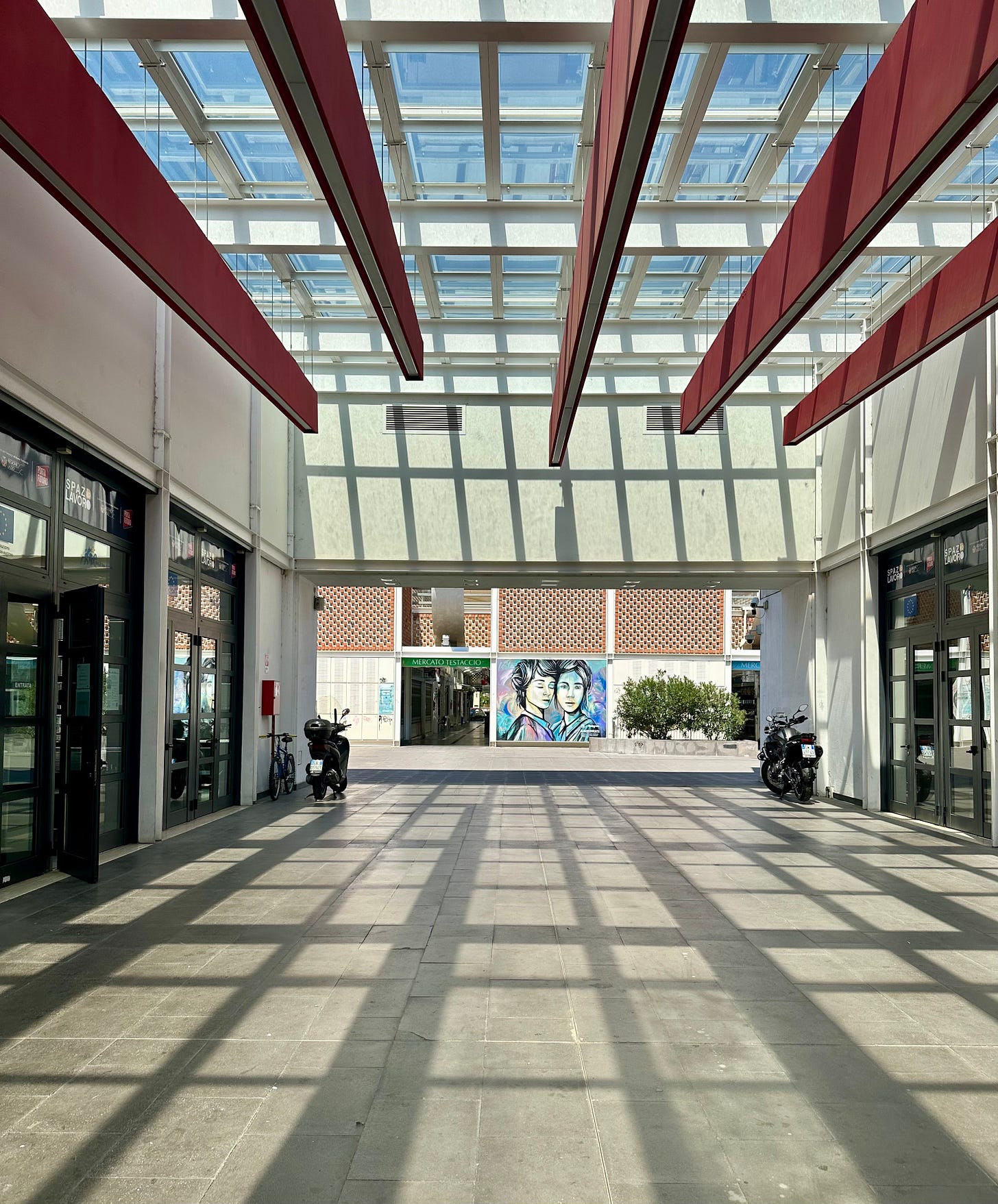
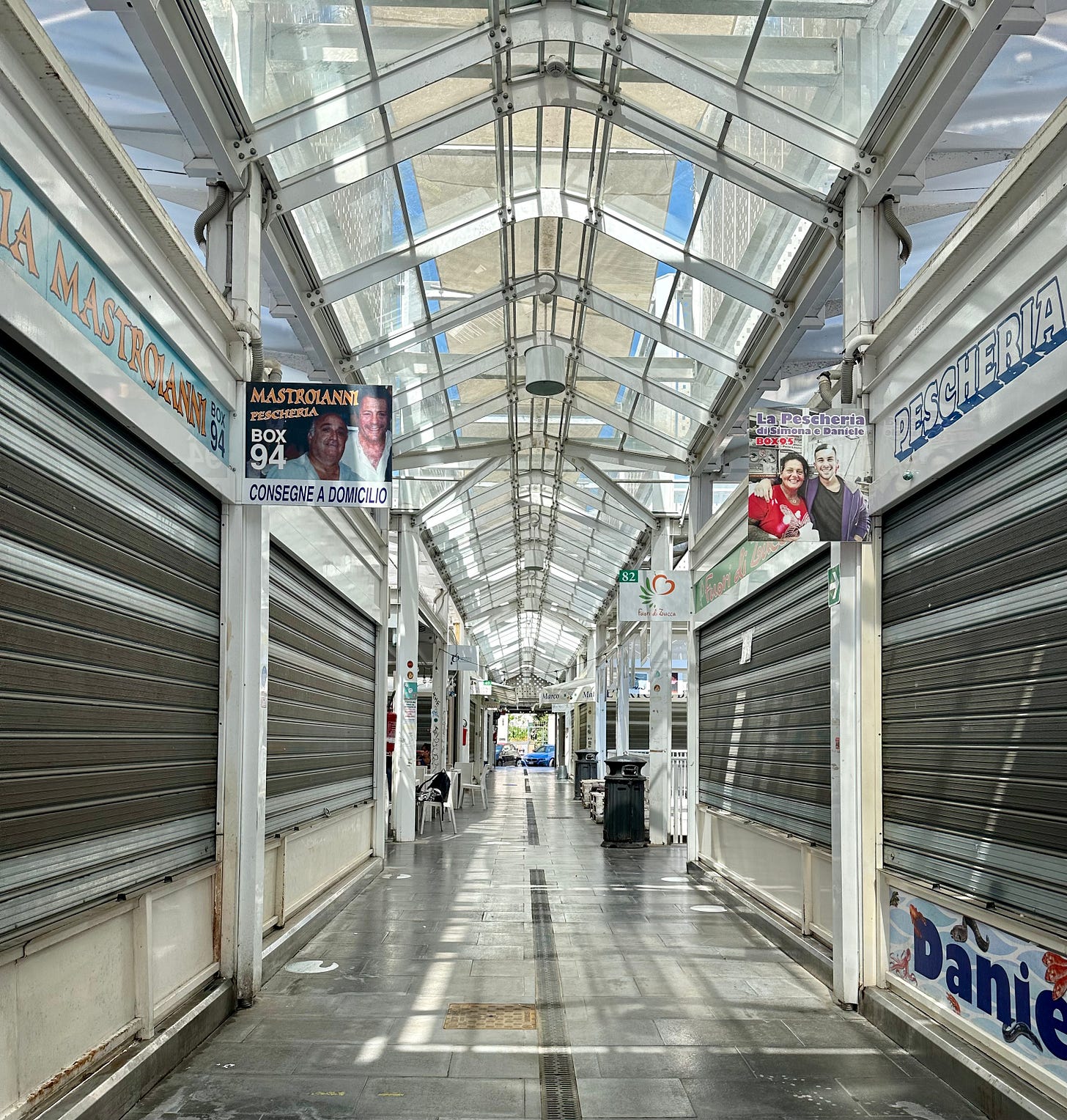
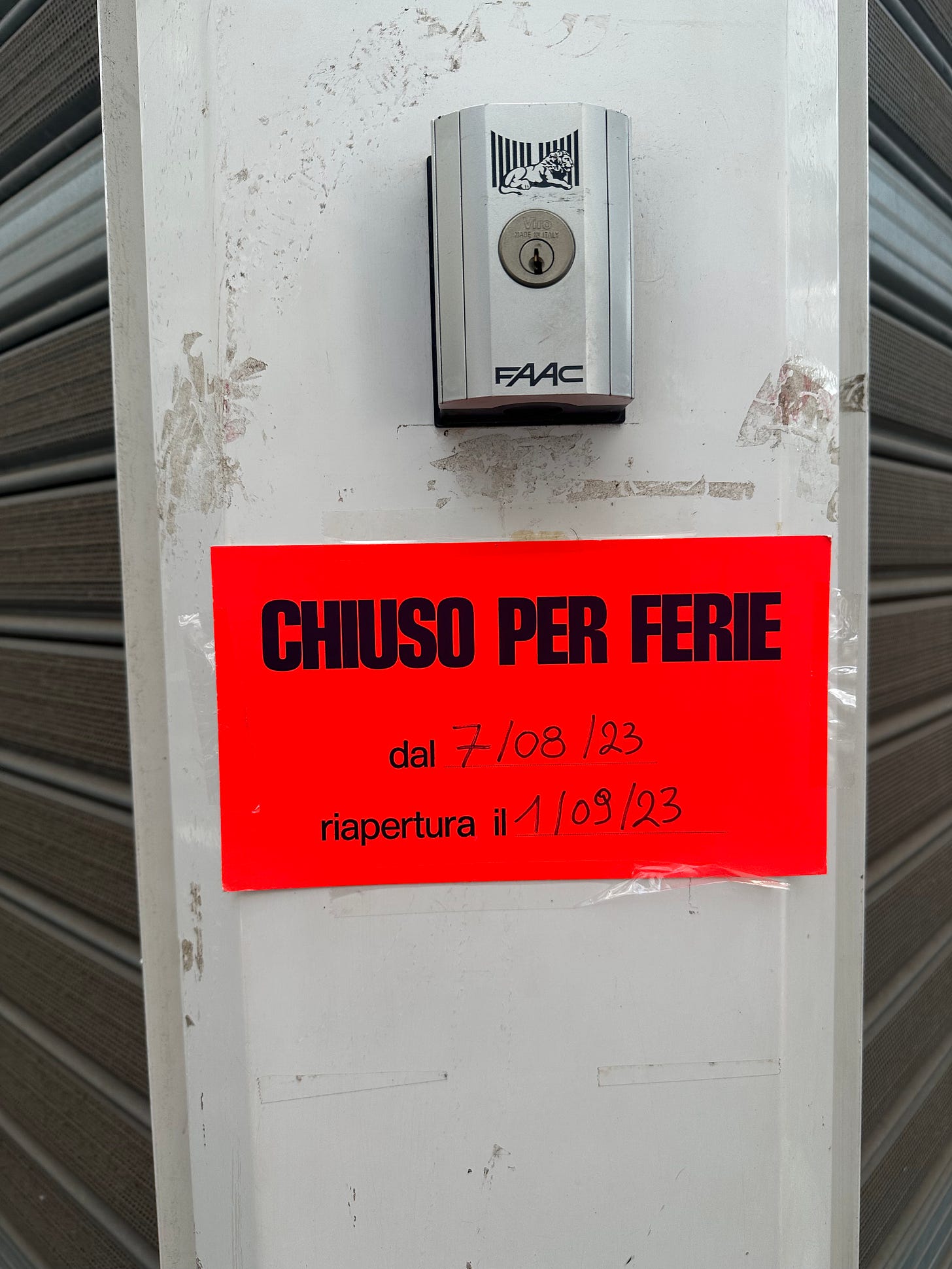
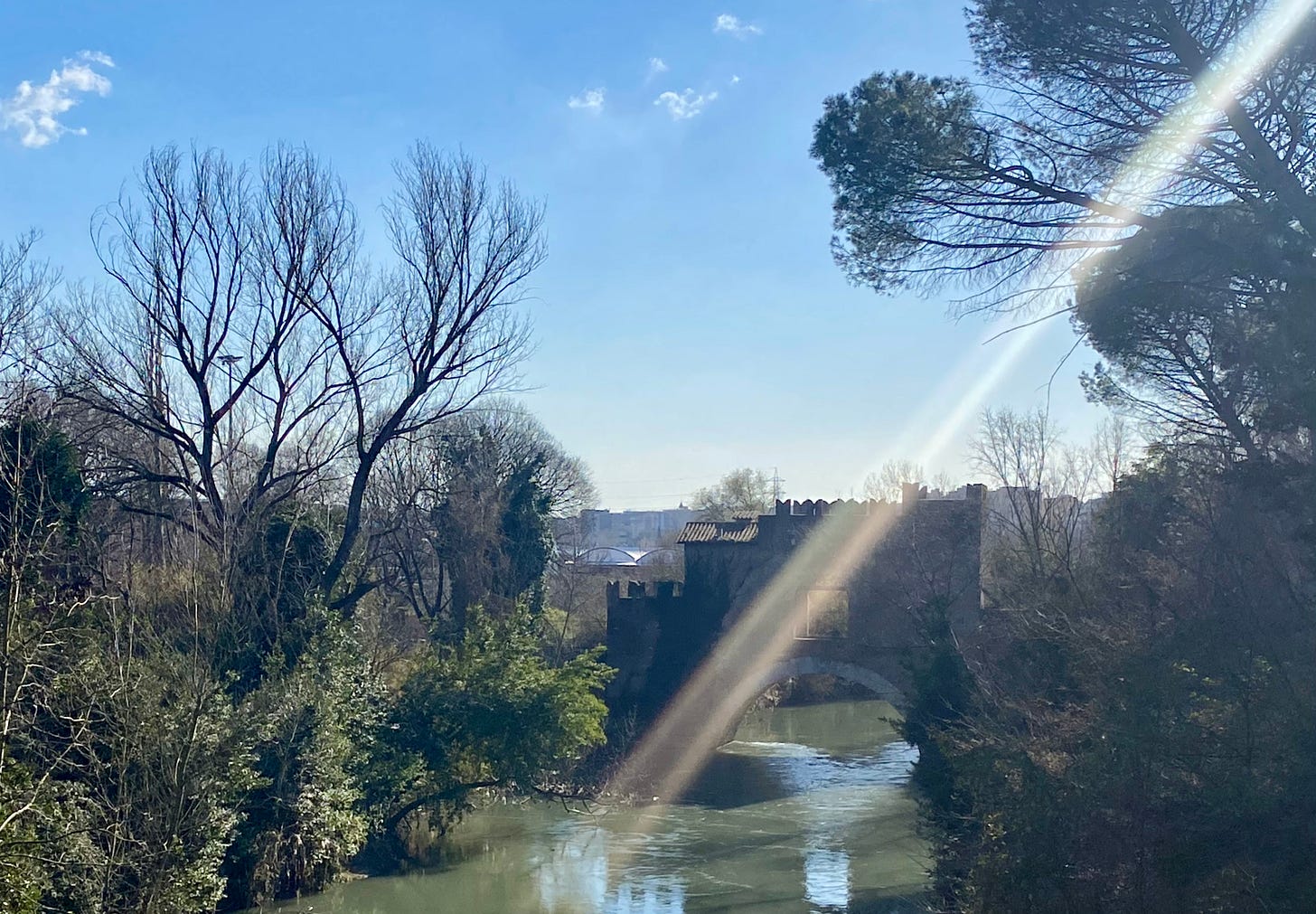
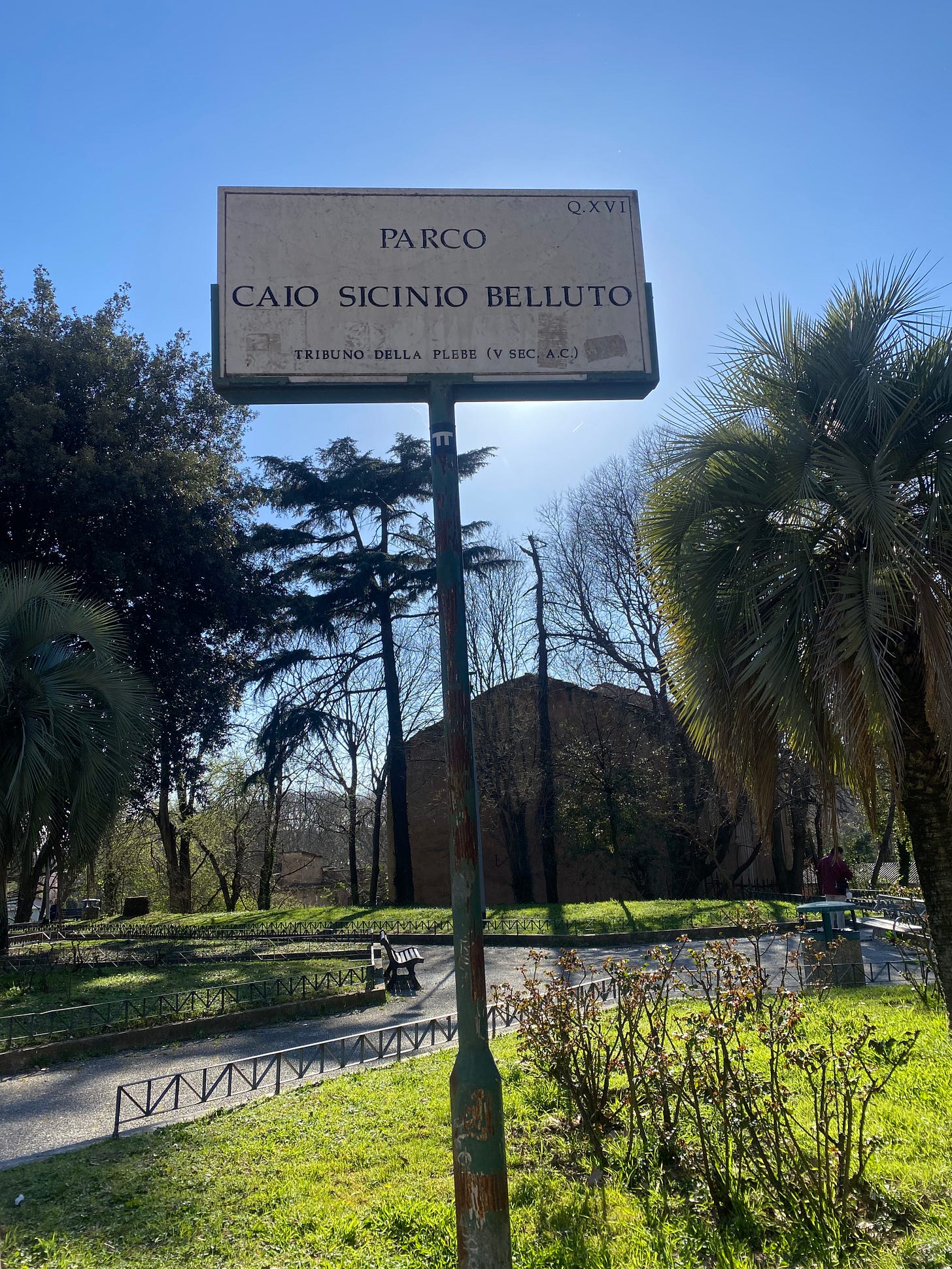
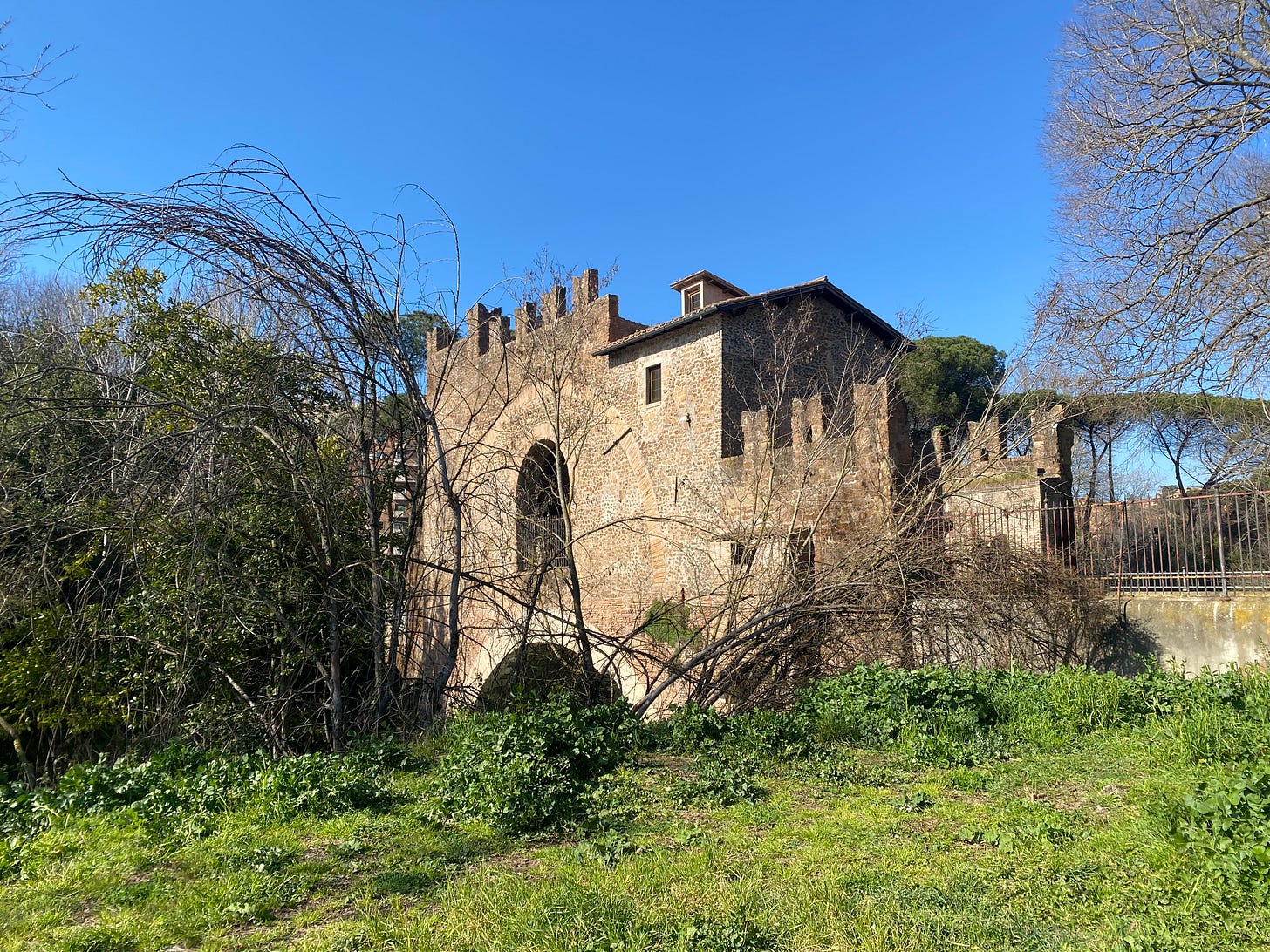
Would never have imagined you could tie together the torpor of Ferragosto and inspiration for a revolution. Amazing!
You've done it again. Amazed and delighted, a bit gobsmacked I am whenever I fisnish one of your monthly letters.